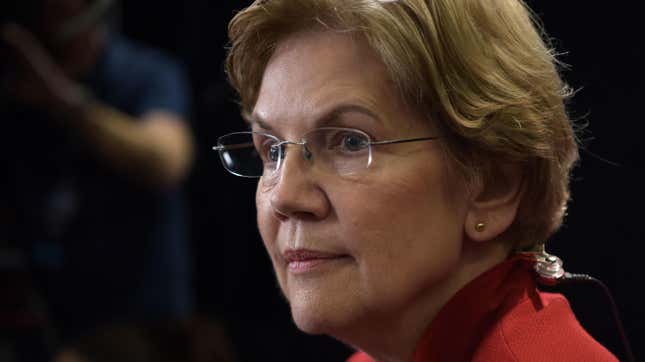

A new narrative to explain for the decline of Elizabeth Warren’s campaign is emerging after her disappointing results in New Hampshire, where she finished in fourth. Warren, according to her campaign and supporters, is being erased by mainstream media outlets and cable news, the same outlets that last summer and fall covered her glowingly as she rose in the polls and released plan after ambitious plan. Instead of the coverage that Warren’s camp would rather receive, what we’re getting from the political press is obituary after obituary on her campaign, all asking the question, what happened?
Last week, in a fundraising email sent to her supporters, her campaign wrote, “Elizabeth hasn’t been getting the same kind of media coverage as candidates she outperformed,” noting that on the evening of the Iowa caucuses, CNN cut the broadcast of her speech short even as they “aired the speeches of other candidates she beat.” “We can’t count on the media to cover our campaign fairly, so we’re taking our case directly to voters,” the email concluded.
-

-

-

-

-

-

-

-

-

-

-

-

-

-

-

-

-

-

-

-

-

-

-

-

-

-

-

-

-

-

-

-

-

-

-

-

-

-

-

-








































